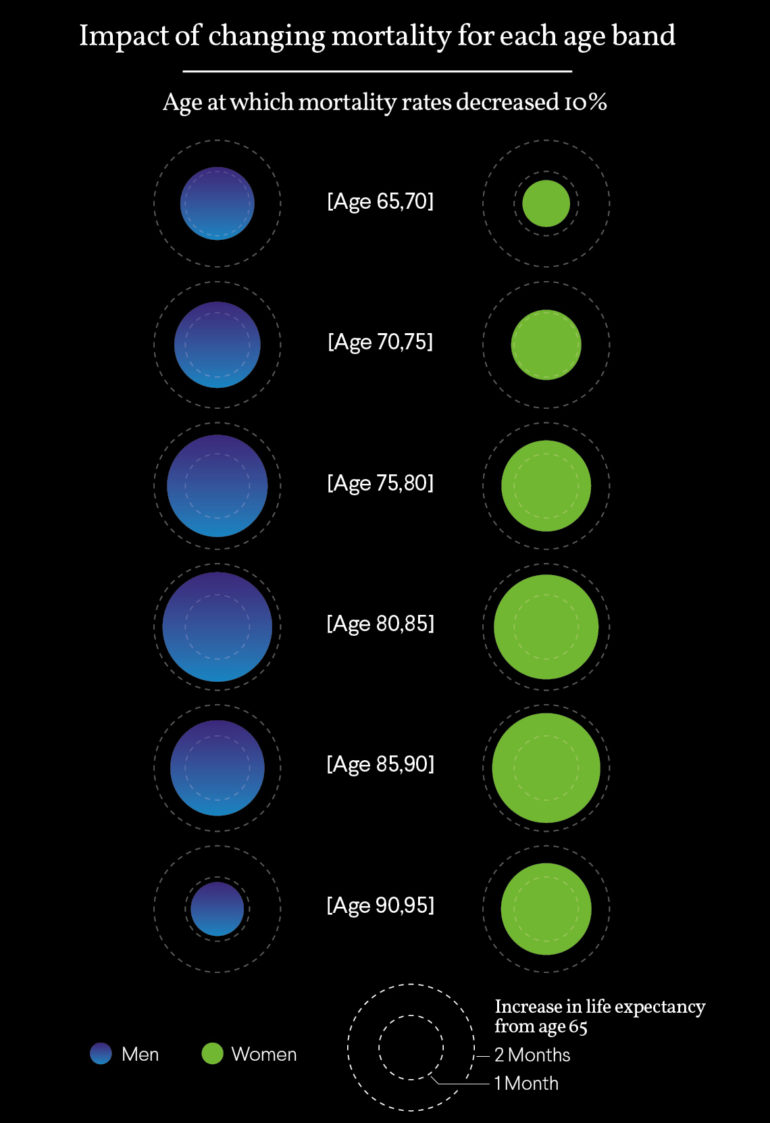In this regular column, Club Vita’s longevity experts will help you visualise the often abstract world of longevity risk by introducing their own personal favourite charts.
In this edition Club Vita’s Head of Longevity Modelling, James Maloney, shows that when it comes to life expectancy for new pensioners, it is mortality rates in people’s late 70s and 80s that make the most difference.
Key ages in longevity risk
Question:
Which ages are most important when calculating life expectancy of new pensioners?
Answer:
Longevity risk experienced by people in their late 70s and 80s has the greatest effect on the life expectancy of new retirees.
The life expectancy of a new pensioner (who we assume here is aged 65) is built up of the probabilities of dying at specific ages in the future. Reducing the risk of dying at any specific age has the effect of increasing the overall life expectancy, but the effect will differ depending on the specific age.
The chart demonstrates the impact on the life expectancy of a 65-year-old, when the mortality rates in each of the displayed age bands are reduced by 10% (with all other mortality rates remaining the same).

Note that we have not allowed for future improvements in the calculations. An allowance for this would likely shift the impact to slightly older ages.
Key Takeaways
- The impact is relatively small at the younger ages.
Mortality rates at these ages are small, so life expectancy is less sensitive to changes in these rates.
- The impact is also relatively small at the oldest ages.
The chance of an individual surviving to these ages (starting from age 65) is low, so changing these mortality rates is of less consequence to new retirees.
- The highest concentration of risk falls around the "middle" ages in retirement.
Mortality rates are high enough to affect the future lifespan of a 65-year old, but also with a relatively high chance of said 65-year old surviving to that age range.
This means longevity drivers with the greatest impact on the lives of people in their late 70s and 80s will have the largest effect on longevity risk for a pension scheme.
The key question is:
What are the factors affecting people in their late 70s and 80s?
What do you think?
Please post your questions in our Friends of Club Vita discussion group on LinkedIn.




